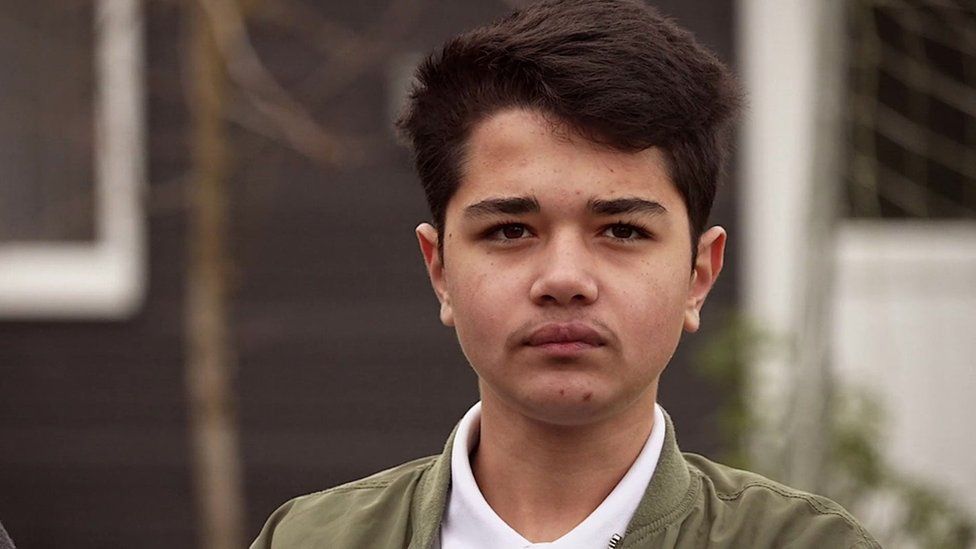
Extra hours of academic learning - as well as sport, music and drama - will be needed to help England's pupils make up ground following the pandemic, the new education catch-up tsar says.
Sir Kevan Collins told the BBC it was important to "act quickly" on making arrangements for the summer and he said that summer schools "had promise".
Sir Kevan said the most disadvantaged had lost up to seven months' progress.
But he also stressed that children were "amazingly resilient".
In his first media interview, he said the youngest children would "need to learn to play together" and to develop the language and social skills needed for school life.
The government is considering options including shorter summer holidays, summer schools and extended school days, with initial catch-up plans due to be announced in late February.
Children's mental health
As well as lost learning, the mental health of children has been one of the major concerns of the Covid-19 pandemic, Sir Kevan says.
He says the response must not just be about adding extra hours of study, but that children's broader needs must be taken into account.
"I think we need to think about the extra hours not only for learning, but for children to be together, to play, to engage in competitive sport, for music, for drama because these are critical areas which have been missed in their development."
But he stressed that "we're going to have to ask teachers to increase learning time for children" and to go back over earlier content children might have missed.
"If you're going to secondary school in the next couple of years, it's vital you're reading at the level you will need.
"We need to step in to support children in some of these critical areas of learning."
Sir Kevan told the BBC it was not for him to tell schools what to do and he said trusting teachers would be at the heart of his approach.
His first task will be to oversee the existing £1.3bn catch up programme in England's schools, including the national tutoring programme.

'It's helped me a lot'
Najeem, a Year 10 pupil from the City of Leicester College, is receiving some extra tuition from one of the companies approved for the programme, My Tutor.
Najeem's school is in an area of Leicester which has been badly effected by Covid-19.
The whole city spent extra time in lockdown last year and some pupils had to self-isolate several times on top of that.
"I'm really happy that I have tuition, especially because I can freely ask questions that I need help or I'm struggling with - it's really helped me a lot.
"In maths I was struggling on a few questions. I asked my tutor if she could help and now I'm doing good on it."

His father, Najibullah, is pleased with the tutoring as a short term solution.
"Tutoring has boosted his confidence and he is a lot better and feels a lot freer to ask questions."
But he says a longer plan is also needed.
"They have missed not only on education but also on social interaction and how to become resilient - they are definitely need a long term plan - one year out of education can affect ten years."
Najeem's tutor, Annabelle Hondier says it can be very challenging for children to keep up with schoolwork if they are on their own at home.
"I've noticed that a lot of them are really, really keen to make progress in their learning and to catch up."
Harriet Hurdley-Lees, assistant head teacher at the school, which has 1,700 pupils aged 11 to 18, wants to see long-term thinking, with schools able to make their own decisions.
"To have any extra forced onto the school, rather than us choosing what we want, the things we think will help our particular cohort, would not be helpful."

The impact of the pandemic will be rippling through schools for years to come.
It is likely for example that the content of GCSEs in 2022 will have to be slimmed down to match what teenagers have actually been able to learn, Sir Kevan says.
He agrees a long term plan is needed, but says the pandemic has also shown how well schools have embraced innovation.
Technology would continue to have a greater role in education, he added.
Sir Kevan was, until recently head of the Education Endowment Foundation, which examines evidence for what works in education.
https://ift.tt/36QiCf6
Sport
Bagikan Berita Ini














0 Response to "Sport, music and drama 'should be part of England's pupil catch-up' - BBC News"
Post a Comment